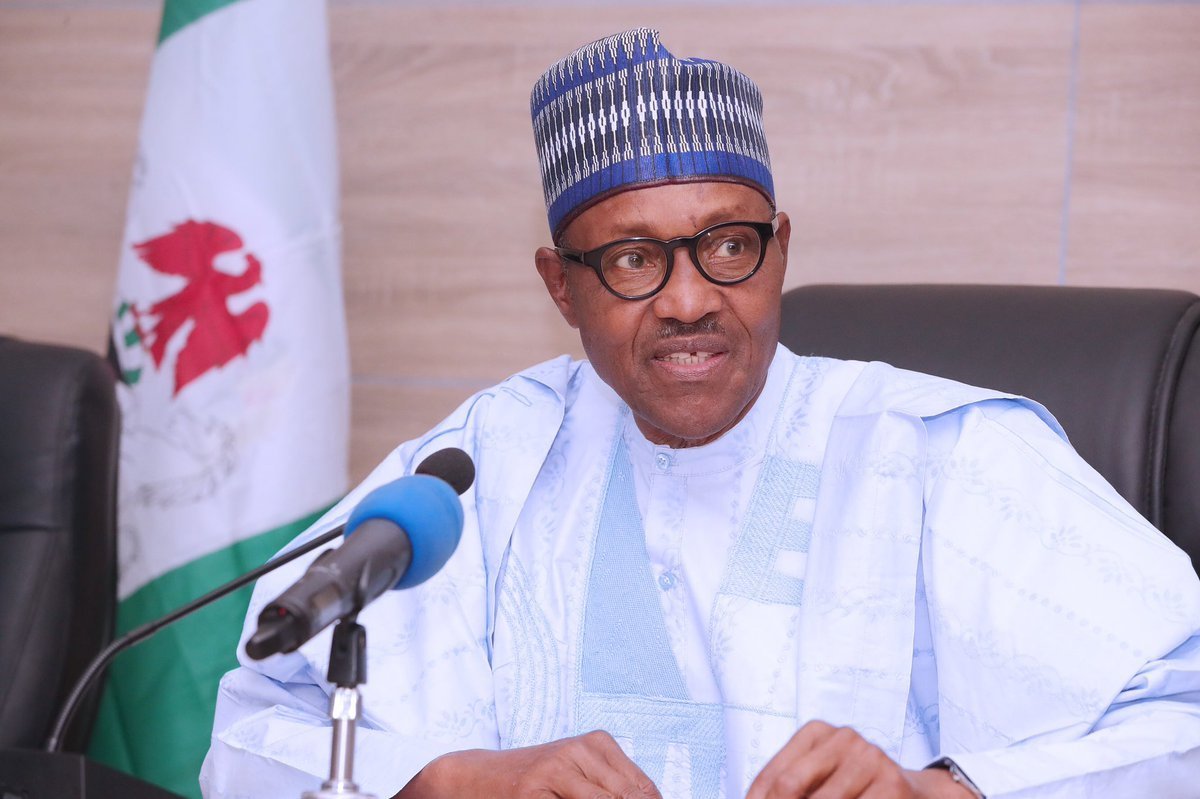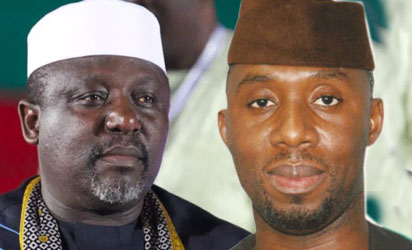Intrigues behind new minimum wage agreement

The organised labour and the Federal Government recently agreed on the modalities for the implementation of the new minimum wage at the federal level. The agreement came after a series of meetings, which saw parties issue threats at some point, FRANK IKPEFAN reports
President Muhammadu Buhari signed the 2019 New National Minimum Wage Bill into law on April 18. It has, however, taken about five months for the Federal Government and organised labour to agree on the adjustment in workers’ salaries as a result of the new minimum wage of N30, 000.
The agreement did not come easy. Negotiations between parties collapsed several times. And, at a stage, it appeared parties would never find common ground as they maintained different positions and suggested varied figures.
The organised labour wanted an increase of 29 per cent for workers on level seven to 14, and 24 per cent for workers on level 15 to 17, propositions the government refused. It instead offered 11 per cent increase for workers on level seven to 14, and 6.5 per cent for workers on level 15 to 17.
The ultimatums by labour
Sensing that the government was not ready to meet its demands on wage increase, the organised labour threatened a strike. It gave the government a two–week ultimatum to meet all of its demands or face industrial action.
Their position was captured in a communique by Nigeria Labour Congress (NLC) President Ayuba Wabba; Trade Union Congress (TUC) President Quadri Olaleye; Joint National Public Service Negotiating Council (JNPSNC) Acting Chairman Simon Anchaver and JNPSNC Secretary Alade Lawal.
The labour, among others, accused the government of foot-dragging on the full implementation of the new wage structure to all workers, despite the unions’ lenient position. Both parties engaged in endless and often fruitless meetings, raising anxiety and frustrations among public sector workers, who had waited patiently over five months for the full implementation of the new wage by the government.
Govt counters labour’s threat
In what seemed a counter move, Minister of Labour and Employment Chris Ngige threatened that the Federal Government would have to lay off workers to be able to meet a wage bill of N580 billion needed to meet labour’s demand on the new wage.
Ngige said the Federal Government was avoiding a situation where it would have to lay off workers.
Rather than frighten members of the organised labour into submission, Ngige’s threat heightened tension ahead of the planned resumption of negotiations between the government and labour.
Labour leaders described the minister’s comments as cheap blackmail, meant to distract the organised labour ahead of the resumed discussions. They further described the minister’s comment as political gimmicks intended to distract the organised labour ahead of its ultimatum.
Subsequently, labour leaders began mobilisation should negotiation breaks down again and both parties failed to reach an agreement at the end of the negotiations. As part of the mobilisation, ahead of the resumption of negotiation, NLC wrote its state chapters, demanding full mobilisation of workers nationwide for a full-scale industrial action, while the Association of Senior Civil Servants of Nigeria (ASCN) equally issued a similar directive to its members. The TUC was not left out.
For the first time, union leaders were on the same page for one outcome: full-scale strike action.
Minister’s resort to demagoguery
After the first phase of negotiations collapsed due to parties’ inability to reconcile their conflicting positions on what should constitute the agreed percentage of increase, the Federal Government’s negotiating team again called another meeting with the JNPSNC and leaders of organised labour to douse the tension that was building up ahead of a possible strike.
But, before the resumption of negotiation with both the JNPSNC, which represented labour unions and the government team, Ngige, had series of reconciliatory meetings with labour leaders.
The minister explained that the reconciliatory meetings were called to douse tension ahead of the resumed negotiation. In some of the meetings, Ngige insisted that the government would not be able to meet labour’s demand. He argued that meeting labour’s wage demand would shut down the economy.
The minister said if the Federal Government used all of its money to pay salaries the economy will grind to a halt. He cited the current state of affairs in Venezuela. He said that about 1.4 million workers in federal public service would take 33 per cent of the government budget in 2020.
Ngige explained that government would have no money to build roads, airport, rails, health centres, schools if it spends the 2020 budget to pay workers’ salaries and wages.
According to him, the government would not be allowed to shoot down the economy because it wants to pay salaries and wages of workers.
The final push
For three days, between October 15 and 18 this year, the Federal Government negotiating team and the Joint National Public Service Negotiating Council which represented labour in the resumed negotiation, were locked in a marathon meeting.
They were joined, this time, by leaders of organised labour led by NLC President and heads of other unions in the country, with Ngige acting as the chief conciliator at the meeting.
After about five hours, the meeting of October 15th ended without both parties reaching an agreement. Both sides shifted grounds and the meeting adjourned until the next day.
On October 16th this year, both parties resumed negotiations. The meeting broke into sessions on different occasions when the government and labour teams had to leave the general session to meet separately before continuing with the joint session.
Around (2 am) on October 17 this year, Ngige told journalists that both parties had finally agreed on so many areas which they had earlier failed to agree on before calling for the adjournment of the meeting to 7 pm of that same day.
He said assignments had been given to some people on both sides, with the committee expecting feedback from them.
Both parties used the meeting of October 17 to fine-tune the grey areas in the agreement it had reached the previous day. At Thursday’s meeting, labour leaders were seen holding documents they had demanded from the government side.
The new deal
At the end of the three-day marathon talks, labour and the federal government finally announced to journalists that they had reached an agreement on the consequential adjustment to the salaries of senior civil servants towards the full implementation of the new minimum wage.
The Acting Head of Service of the Federation, Dr. Folashade Yemi- Esan and Minister of Labour and Employment, Sen. Ngige signed on behalf of the federal government while NLC President, Wabba and the Acting Chairman of JNPSNC, Anchaver, signed for organised labour.
The agreement, after two days of talks, ended the strike threat by organised labour.
In addition to Federal Government workers on Levels 1-6, who already enjoy the N30, 000 minimum wage, Grade Level 07 workers, will now have 23% addition to their pay.
The other categories of federal workers will get the following increment: 20 per cent for GL 08; 19 per cent for GL 09; 16 per cent for GL 10 to 14 and 14 per cent for workers on GL 15 to 17.
Also, workers in public tertiary institutions, the health sector, research institutions and security were not left out.
These categories of workers would enjoy a percentage increase of 23.2 per cent for GL 07; 16 per cent for GL 08-14 and 10.5 per cent for GL 15-17.
Members of the armed forces and other security outfits will also benefit from the consequential adjustment.
“For officers on this wage structure, Grade level seven or its equivalent had an increase of 23.2 per cent, grade level 8-14 and its equivalent had 16 per cent increase and grade level 15-17 or its equivalent had 10.5 per cent increase,” the minister said.
Speaking on the implementation of the new wage structure, Ngige said that every employer of labour in Nigeria was bound to begin payment immediately.
He tasked labour unions to take a legal step against defaulters.
“Enforcement of this law is by the Ministry of Labour and Employment through our inspectors in the field. The National Salaries, Incomes and Wages Commission will also help in the enforcement. The labour unions can report (failure) to us or approach the National Industrial Court directly. We expect every employer of labour to start payment immediately,” the minister said.
Also speaking in an interview, Wabba said: “The process of collective bargaining is about ‘give and take’ as I have said. I think this is a greater improvement from where we started and with what we have been able to achieve.
“The bottom line is that we have come to the end of the issue of consequential adjustment and both parties participated in the process and made inputs. Workers can now expect something they can rely on to address some of the challenges that the economy has posed.”
The labour leader said the agreement also meant that state councils of labour unions would have a template to negotiate with state governments.
“The guidelines will be transmitted to the state councils and they will work in harmony as we have done at the centre. The joint council, TUC and NLC will work to ensure that implementation takes effect,” Wabba, added.
Asked how soon the implementation would take effect, Yemi-Esan said the government would begin the process immediately.
She said: “It has been a very fruitful deliberation in the past three days because both sides sat to work out this agreement. Everybody contributed to arrive at this agreement. It is good the labour and government could sit together to agree constructively.
“Work will start on the implementation immediately. We will work out the arrears. The important thing is that we have an agreement, once the arrangement has been made, payment will begin as soon as we get the proper sums together. What we have done is just the percentages, we still have to work out the proper sums and the implementation will begin.”
Yemi-Esan said the Federal Government can’t determine what happens at the state level with regards to the implementation of the new minimum wage.
She said the government would pass the template adopted at the federal level to state governments to serve as a guide in their implementation of percentage increase for workers.
With the concluded agreement at the federal level, the battle has now shifted to the states.







